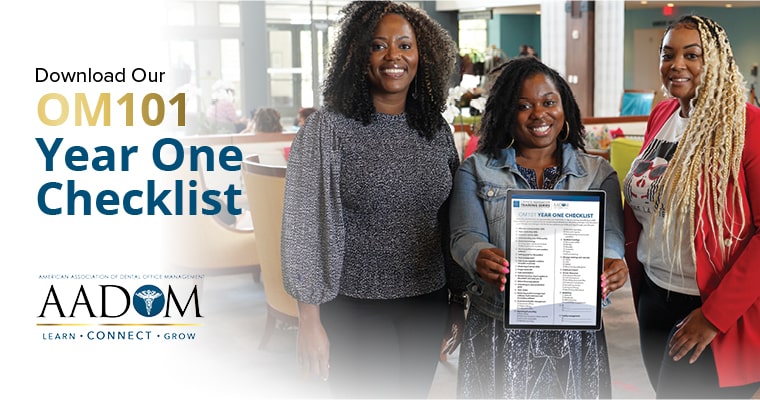
If you’re like most Americans, once the holidays come and go, the credit card debt is rolling in. It doesn’t feel so good anymore buying that extra gift you just had to have or the splurge at the soap/aromatherapy shop because it was their annual sale. Instead of getting down on yourself, spend some time to invest in your financial future, and get a plan going.
Creating financial independence is not an easy topic and many people avoid it like the plague. The two variables in life that we hear most often about are time and money. We can budget and plan for our time, but the time we have on earth is not in our control. However, our finances are! Let’s make the most out of the time that we have, budget properly, and live life to the fullest!
As an upfront disclaimer, I am not a financial advisor, accountant, or tax attorney. These are simply some of the things that I have learned over the years that have worked. I have presented this to our team many times and have provided the knowledge to help them with their financial goals also. As with any financial information, you should always consult your own personal advisor.
Personal budgeting tip #1: No one can go backward
Don’t be ashamed of debt that you have; just learn from it so you don’t repeat it. Like any journey, it takes commitment and dedication to make a change. Think about it from a willpower standpoint. Will it just be easier to stop at a restaurant for your family dinner or to make a meal at home? After a long day at work, it is usually easier to stop at the restaurant, but from a financial standpoint - some simple planning can go a long way!
Consumer debt depreciates. That is, it immediately loses value while you continue to make payments. Examples include cars, clothing, jet skis, food, movies, and yes, shoes. Now that we know about this debt, what can we do to stay out of it?
Pay for all of your “fun things” with cash or a prepaid gift card. When the money runs out, you simply do not spend more.
Be sure to have a “partner commitment.” When something costs more than a certain dollar amount, call your “partner” to get approval. This partner may be a spouse, friend, or colleague. If your significant other isn’t good at saving money, pick someone else.
Do not open store credit cards. The reason they offer you such high savings is because the terms are good for them, not you. Opening an account to save the 5% on one purchase can cost you a lot more down the road if you’re not very careful.
Personal budgeting tip #2: Stop using credit cards
Pay the smallest balance off while continuing to maintain the minimum payments on all credit cards. If all credit card balances are equal, pay off the one with the highest interest first.
Pay credit cards at each pay period; do not pay once a month. You can pay the same amount each month but pay your credit card bills multiple times per month.
Personal budgeting tip #3: Cut the bills
Now that you know where your money is spent, is it being spent wisely? Review your list of living expenses. Then consider asking around to find out who has the best rates on things like auto insurance, internet, etc. Reduce your living expenses as much as possible! You can even call the companies you do business with and ask them for a better rate. There are MANY online comparison websites such as
Opens a new tab to the squeeze website squeeze.com and
Opens a new tab to the bankrate website bankrate.com where you can compare loans and payments of living expenses.
Consider using your local power company’s website to complete a free home energy assessment. Often, this step can save you hundreds of dollars a year. Then go to resources like the
Opens in a new tab to the IRS website IRS and
Opens in a new tab to the DSIRE website DSIREusa.org to look at the credits available for making your home energy efficient. You can get credits for things like solar electric, solar water heating, wind electricity, geothermal heat pumps, and qualified fuel cells. Sites like
Opens in a new tab to the energystar website energystar.gov can help you find rebates and credits for energy-efficient appliances, air-source heat pumps, windows, and more!
Finally, utilize free online financial calculators for savings, mortgage, student loans, and retirement to get your debt snowball and savings rolling.
Personal budgeting tip #4: Set realistic and practical goals
What are your financial expectations? Just pay the bills, get out of debt, stay out of debt, save money, save for college, donate money? As you can see, everyone’s financial expectations can be different. Define yours.
Where do we spend our money? No, not at Macy’s or Nordstrom’s, but what categories can we group our money into? Living expenses, debt, savings, taxes, giving. All your spending is classified into one of these different categories of debt. Make a list of all of your debts and classify them into one of these categories.
Are there things that should be a part of your budget, but are not currently, such as:
- Prepaid College
- Special Needs Considerations
- Budget for Testing and Support Services (SAT, ACT, Prep Courses)
- Sports
- Travel
- Experiences/Etched Memories
- Investing in Family Traditions
- Financial Training
- Allowance for Your Child(ren)
That’s great… now I needed even more money than I thought! Not really. You were going to do it anyway and figure it out later. So, let’s get a plan!
As far as living expenses go, write down each expense you have, how much it is, when it’s due, and if there are average costs (such as fluxes in your monthly water bill). Things you want to be sure to include are car insurance, water, power, cable, satellite, gas, groceries, car payments, rent, phone, and property insurance.
Now, do the same with your debts, but add in the interest rates. This includes everything from your Visa or MasterCard to your student loan.
Then, list out all methods of savings that you have. How much do you currently save and when do you save it? List out all of your accounts, whether they’re a savings account, piggy bank, prepaid college plan, or 401K.
Up next is a plan for your giving. Make a list of all charities that you give to, how much you want to give, and when you plan to.
Finally, we come to taxes. List out all taxes that you pay, when they’re due, and how much you’re supposed to pay. And on that note, do you really understand your taxes, or should you hire an accountant? When it comes to tax brackets, the IRS changes the rate at which different income levels are taxed. Let’s say you’re in the 25% tax bracket. That means that for every dollar you make, 25 cents go to taxes. If you have deductions (like 401K or health insurance) that are taken out pre-tax, this means you are not paying the 25% tax.
Be money-smart. Plan for your money to be spent where it’s needed, not where it isn’t. Otherwise, save it and make memories!
Meet the Author

Kelli Carter is the Practice Administrator for Advanced Dentistry South Florida in Delray Beach, Florida. With more than 23 years of experience in the dental industry, Kelli has seen the many challenges that office managers face on a daily basis. She is passionate about giving back to the community, helping others, and protecting our environment. While the patient experience is extremely important, Kelli believes that it all starts with having an engaged team. Kelli is the Chapter President for the Southeast Florida Chapter of AADOM and a Fellow.

 If you’re like most Americans, once the holidays come and go, the credit card debt is rolling in. It doesn’t feel so good anymore buying that extra gift you just had to have or the splurge at the soap/aromatherapy shop because it was their annual sale. Instead of getting down on yourself, spend some time to invest in your financial future, and get a plan going.
Creating financial independence is not an easy topic and many people avoid it like the plague. The two variables in life that we hear most often about are time and money. We can budget and plan for our time, but the time we have on earth is not in our control. However, our finances are! Let’s make the most out of the time that we have, budget properly, and live life to the fullest!
As an upfront disclaimer, I am not a financial advisor, accountant, or tax attorney. These are simply some of the things that I have learned over the years that have worked. I have presented this to our team many times and have provided the knowledge to help them with their financial goals also. As with any financial information, you should always consult your own personal advisor.
If you’re like most Americans, once the holidays come and go, the credit card debt is rolling in. It doesn’t feel so good anymore buying that extra gift you just had to have or the splurge at the soap/aromatherapy shop because it was their annual sale. Instead of getting down on yourself, spend some time to invest in your financial future, and get a plan going.
Creating financial independence is not an easy topic and many people avoid it like the plague. The two variables in life that we hear most often about are time and money. We can budget and plan for our time, but the time we have on earth is not in our control. However, our finances are! Let’s make the most out of the time that we have, budget properly, and live life to the fullest!
As an upfront disclaimer, I am not a financial advisor, accountant, or tax attorney. These are simply some of the things that I have learned over the years that have worked. I have presented this to our team many times and have provided the knowledge to help them with their financial goals also. As with any financial information, you should always consult your own personal advisor.
 Kelli Carter is the Practice Administrator for Advanced Dentistry South Florida in Delray Beach, Florida. With more than 23 years of experience in the dental industry, Kelli has seen the many challenges that office managers face on a daily basis. She is passionate about giving back to the community, helping others, and protecting our environment. While the patient experience is extremely important, Kelli believes that it all starts with having an engaged team. Kelli is the Chapter President for the Southeast Florida Chapter of AADOM and a Fellow.
Kelli Carter is the Practice Administrator for Advanced Dentistry South Florida in Delray Beach, Florida. With more than 23 years of experience in the dental industry, Kelli has seen the many challenges that office managers face on a daily basis. She is passionate about giving back to the community, helping others, and protecting our environment. While the patient experience is extremely important, Kelli believes that it all starts with having an engaged team. Kelli is the Chapter President for the Southeast Florida Chapter of AADOM and a Fellow.




